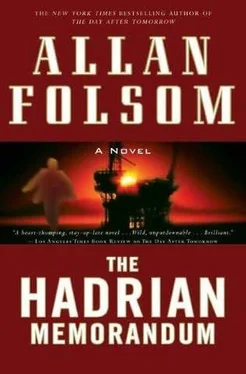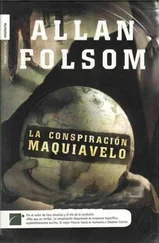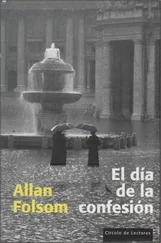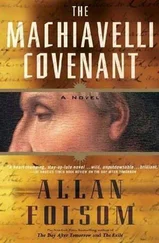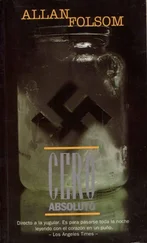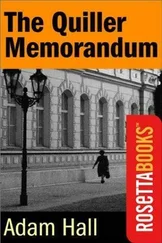“When was the last time she was here?” Franck walked carefully around the room, looking at everything, touching nothing.
“Two years ago. March twelve through fifteen.”
“Hauptkommissar.” Detective Gertrude Prosser came in through the open door to the marble and polished-wood bathroom. “One or both of them took a shower. The hotel robe is still damp, as are three towels.”
“Two pieces of luggage.” Franck’s eyes scanned the room. One of Anne’s suitcases was on a luggage rack near the door; another was on the floor next to it. A pair of dark slacks, a designer blazer, two business suits, a pair of black dress slacks, an evening jacket, and a pair of expensive, somewhat wrinkled white linen slacks with a matching short-sleeve top hung in the open closet.
“Technical unit is on the way.” Detective Bohlen came back in from the hallway.
Immediately Franck lifted a small police radio and spoke into it. “This is Franck. I want information on a Hannah Anne Tidrow of the AG Striker Oil and Energy Company of Houston, Texas. What she does there, her title, how she’s involved with the company. If there is a recent photograph of her.” He clicked off and looked to Bohlen. “Get a canine team up here as quickly as possible.”
“Yes, sir.”
“You and Prosser go to the Hotel Mozart Superior. Get the names and addresses of everyone who registered there in the last ten days. Then assemble the staff, give them a description of Hannah Anne Tidrow, and show them the suspect’s photograph. Maybe they were only passing through or using the hotel as a way to throw us off, but if he was a guest there somebody will recognize him, and then we’ll have a name, a room number, and an address.”
“Yes, sir.”
8:12 P.M.
MONTE DE EL PARDO, SPAIN. SAME TIME.
The soil under the ancient olive trees was soft from a recent, unseasonable rain and made the grave easy to dig. A few minutes with a shovel and the job was done. Conor White lifted the corpse himself. It was small and delicate in his large hands. For a moment he studied it-the two tiny feet at the end of spindly legs, the unruly fluff of feathers at its neck, the proud twist of its beak, its gray wings, looking as if they could still take flight, neatly tucked back against its body. What kind of bird it was, or had been, he didn’t know.
“I hope you had a good life, my little friend,” he said reverently. Then, turning the creature over so that it would be on its side in the earth, he placed it gently in the grave and covered it over with soil. “Farewell and safe journey,” he said with the same reverence. Then, shovel in hand, he walked off through the olive grove toward the farm house.
To his right he could see the A6, the main highway to Madrid, and the evening traffic on it leading to and from the city. A thick forest of conifers surrounded the house from behind and to the side, obscuring it from the roadway, while fallow, unplowed fields stretched out in front and to the right in an expansive fifty-acre semicircle. The farm was for sale and had been since its elderly owner had passed away more than two years earlier. So far there had been no offers to buy and no funds allotted for upkeep. As a result the olive trees had gone unattended. So had the mile-long dirt and gravel drive leading into the property, an ingress/egress that had been washed away in any number of places by winter rains and was mottled with rocks and overgrown with weeds. Yet, troublesome as it was, it had not deterred vandals from breaking into the house and taking anything and everything of value, leaving only the stove and toilets and a few pieces of unwanted furniture. The only other structure on the property was a dilapidated barn in a state of such disrepair that the only reasonable thing to do would be to knock it down and rebuild it from the ground up. Altogether, the location made an ideal setting for the interrogation that had been going on since he and his colleagues had arrived from Madrid via private jet from Malabo and then been driven here in a hired car some six hours earlier.
Six hours of questioning was a long time and had left the people being talked to both terrified and exhausted. Which was, perhaps, the reason he still had no answer to his queries, and why he’d walked out, to give them a rest and let them consider the gravity of their situation and to get some fresh air himself. It was then he’d found the dead bird in the shadows just outside the door.
8:18 P.M.
He was closer to the house now. Inside he could see the dull glow of a portable lantern one of his men had brought correctly assuming the property no longer had working electricity. He looked up at a sky filled with red streaks and wisps of clouds as the sun set in the west. If he were the smoking man he once had been, this would have been the time he would have brought out a cigarette. But not now. Smoking was in his past, so he had nothing to use as a crutch except his own thoughts and emotions, which at the moment were deeply troubling.
This was hardly the situation he’d imagined when he took the job creating SimCo for Striker and Hadrian more than a year before, resigning from his own company to take a position that would be a major step forward in the highly lucrative world of private security companies. Not just a step but a leap, one that had begun with a ten-year contract with Striker Oil to protect their workers in Equatorial Guinea and that was renewable every five years afterward for the next fifty years. It was a situation that had instantly put him on a level with major private security firms worldwide, and that included Hadrian. But in that heady rush of expectation, neither he nor anyone else had foreseen the bizarre, even obscene, minefield that he and SimCo were in now. How graphically simple and stupid the whole thing with the photographs was. Almost as graphically simple and stupid as the Watergate break-in that brought down the Nixon administration almost a half century earlier. Yet it was as real for him as it must have been for Richard Nixon. But he wasn’t a paranoid president locked up in the golden hell of the White House; he was a highly educated, seasoned warrior whose charge it was to bring the nightmare of the photographs to a fast and silent resolution before everything disintegrated because of it.
In the last hours he had heard from Loyal Truex-twice-and from Josiah Wirth, who, at this moment, was on his way to Europe from Texas on an AG Striker corporate jet. Coming, he was sure, for one reason alone, to look over White’s shoulder and direct his every move. Both men had demanded to know where he was and how he was progressing and when, exactly, the problem would be resolved, as if he were a plumber called in to repair a broken toilet while a wedding party waited outside to use it. Both wanted it done yesterday, yet neither understood the complexity of finding the ghost he was chasing. Truex was trouble enough, but at least he and White spoke the same language. Wirth was entirely different, a man too driven, too egotistical, too rich, and too single-minded to view the world from any other perspective but his own. People like that easily became reckless, even foolhardy, especially when they began to lose confidence and feel things were slipping out of their control. As a result they left themselves wide open to their own brand of panic, one that easily led to judgments that could be hugely damaging and sometimes dangerous or even deadly, and not just to themselves but to people around them. And that was the last thing Conor White wanted.
Now or ever.
8:20 P.M.
In the growing twilight he could see the black Mercedes limousine that had brought the captives to the farm house parked under an overhang of trees. Its liveried driver and a similarly dressed local gunman, who had met White and the two SimCo mercenaries he’d brought with him from Bioko to Madrid and driven them there, were standing nearby smoking and chatting. Fourth and fifth hands if a problem arose inside the house. As if it would with the men stationed there: Irish Jack Hanahan, a former member of Sciathán Fianóglach an Airm, the Ranger Wing of the Irish army, with massive thirty-two-inch thighs, lightning reflexes, and fists like hams; and the wiry, almost too handsome French-Canadian with piercing green eyes, Patrice Sennac, at one time the CIA’s top Central American counterinsurgent, a veteran jungle fighter, who had a long scar at the side of his mouth to prove it. Depending on the situation, either man could be absurdly polite or grimly lethal to anyone, friend, enemy, or whoever fell in between. Like those waiting for him to come back inside and begin the questioning once more-the young Spanish doctor and her four medical students. Five people who might very well know what the Equatorial Guinean army interrogators had failed to find out-the location of the photographs. Might very well know because Nicholas Marten would have had every opportunity to tell them: on the road to Malabo from where they had first met on the beach in Bioko South, or in Malabo itself at the hotel over drinks, or, last and most likely of all, on the long overnight plane ride to Paris.
Читать дальше
